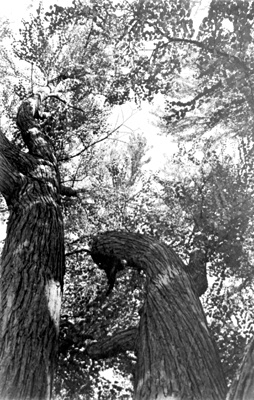All Nonfiction
- Bullying
- Books
- Academic
- Author Interviews
- Celebrity interviews
- College Articles
- College Essays
- Educator of the Year
- Heroes
- Interviews
- Memoir
- Personal Experience
- Sports
- Travel & Culture
All Opinions
- Bullying
- Current Events / Politics
- Discrimination
- Drugs / Alcohol / Smoking
- Entertainment / Celebrities
- Environment
- Love / Relationships
- Movies / Music / TV
- Pop Culture / Trends
- School / College
- Social Issues / Civics
- Spirituality / Religion
- Sports / Hobbies
All Hot Topics
- Bullying
- Community Service
- Environment
- Health
- Letters to the Editor
- Pride & Prejudice
- What Matters
- Back
Summer Guide
- Program Links
- Program Reviews
- Back
College Guide
- College Links
- College Reviews
- College Essays
- College Articles
- Back
The Epilogue
I have never met my grandfather; he died of pancreatic cancer before I was born. But I can say with all certainty that he is the relative I look up to the most. When I was old enough to hear the tale, my mom told me the story of his life.
During World War II, children became adults at twenty-one but could join the military at sixteen with parental consent. When my grandpa was fourteen, he lied about his age and joined the military anyway, envisioning for himself a glorious career protecting the citizens of the United States. Unfortunately for him, he was in a non-combat airplane crash four years later and rushed to the hospital to be treated for serious head trauma and sporadic seizures. The doctors told him he had six months to live.
As any rational person would do after hearing such news, Grandpa joined a gang of bootleggers and began smuggling alcohol from San Francisco to Washington. Though the Prohibition had been lifted, Washington was a dry state with cops that understandably frowned upon illegal trafficking. It was essential that Grandpa's gang pay off a cop to keep quiet about their transactions. Then, when the cop threatened their profit by demanding more and more money to look the other way, it was essential that Grandpa's gang kill him. So it was that at age nineteen, with only months to live and nothing to lose, Grandpa became a murderer.
He never denied it. Didn't even try to hide from the law. He was caught and sentenced to life in prison, which, for him, was not a steep price to pay. Still, Grandpa wasn't about to waste what little remained of his life. He set to work devouring every book he could get his hands on. He held a particular fondness for psychology and law books.
Still alive in his early twenties, he convinced lawmakers to write legislation that protected juveniles from being sentenced to life in prison. Grandpa's intention was to be released from his term early because he had, in fact, been nineteen when he committed his crime. However, because he had lied that he was two years older in order to join the military, the judge thought he was twenty-one at the time of his murderous misdemeanor and refused to set him free.
Grandpa spent eleven or twelve years in prison before his mother could gather enough evidence to testify about his real age. Then he was released, got married, had four children, and became an honest man. He lived to the ripe age of sixty-four, to the chagrin of every doctor who had misdiagnosed him.
When my mom first told me this story, she stopped there. Her hesitancy as she finished with " . . . and that's it," led me to believe there was more to the story. Using the best weapon wielded by a teenager, persistence, I wrestled the epilogue from her.
As he lay on his death bed after recounting his life story to his children, Grandpa gestured to my mom to come closer. He put his mouth right next to her ear and whispered, "I'd kill that bastard cop again if I could."
Mom claims that Grandpa wasn't right in the head before he died. She thinks he embellished the story. She has letters he wrote while in jail that contain more concrete details, but I have no desire to see them. I don't want anything to tarnish my opinion of a lawmaking, bootlegging, murdering grandfather. I look up to him not because he was those things, but because he became those things despite being told to give up his dreams of life. Grandpa was fourteen when he joined the military, eighteen when he was told he would only live for six months, nineteen when he murdered a cop, and in his twenties when he changed the law. He never showed an ounce of remorse. That is how I will tell this story to my kids one day. I can only hope to live as exemplary a life as he did. I can only hope to live a life unburdened by regrets.

Similar Articles
JOIN THE DISCUSSION
This article has 0 comments.
